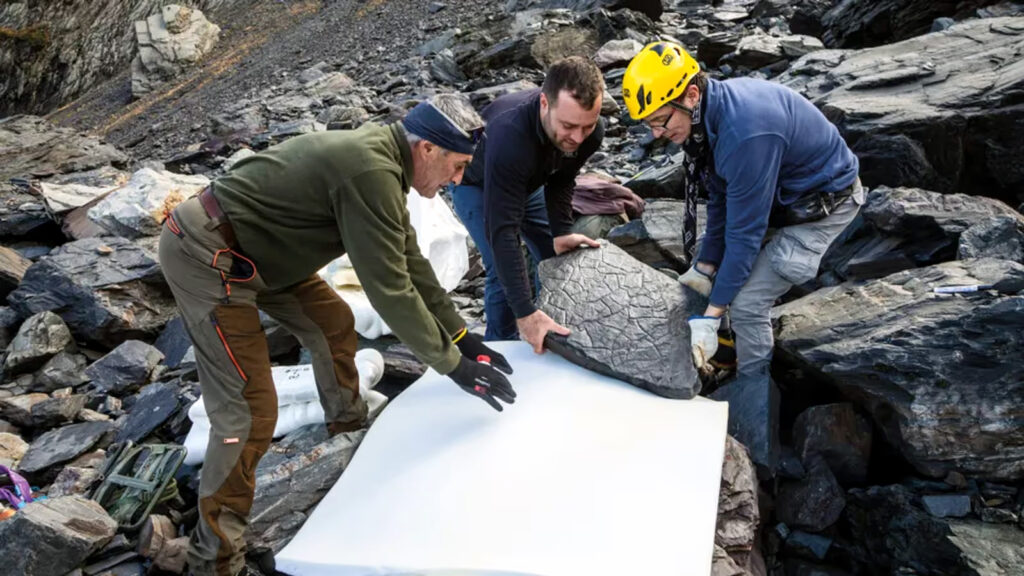
In an astonishing discovery, a hiker exploring the Italian Alps accidentally uncovered a 280-million-year-old ecosystem frozen in time. While trekking through Valtellina Orobie Mountains Park in 2023, Claudia Steffensen noticed peculiar patterns on a rock slab resembling ancient footprints. Her curiosity led to an in-depth scientific investigation by experts from the University of Pavia and the Natural History Museum of Milan.
The initial find, dubbed “rock zero,” contained fossilized tracks of prehistoric reptiles and amphibians. Further exploration revealed more sandstone slabs preserving plant remains, ripple marks from ancient lakeshores, and even raindrop imprints. These fossils, found at an altitude of over 9,800 feet, date back to the Permian period—a time of extreme climate change, marked by volcanic activity and widespread extinctions.
Paleontologist Cristiano Dal Sasso noted that these creatures, some as large as modern Komodo dragons, left behind detailed impressions, including claw marks and belly scales. Tectonic activity over millions of years lifted these fossils high into the Alps, where landslides later exposed them.
This discovery enriches our understanding of prehistoric life and highlights how ecosystems adapt to climate shifts—an invaluable lesson as we face modern environmental challenges.
